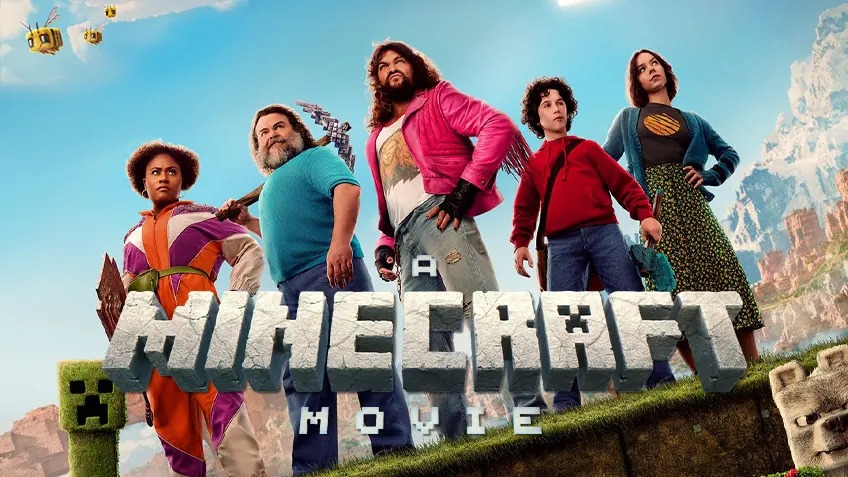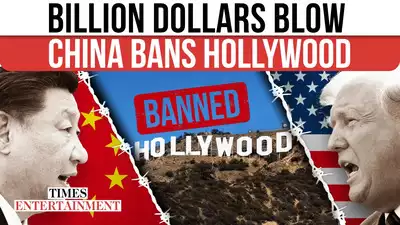As the U.S.-China trade war escalates, Hollywood’s major studios are bracing for a financial reckoning that could reshape the global film industry. On Wednesday, Beijing announced a drastic reduction in imports of American movies, slashing Hollywood’s market share in China from 15% to a mere 5% in retaliation for President Donald Trump’s newly imposed 104% tariffs on Chinese goods. The move, confirmed by China’s Ministry of Commerce, threatens to choke off a vital revenue stream for studios like Disney, Warner Bros., and Paramount, which have long relied on China’s 1.4 billion consumers to bolster blockbuster earnings. With billions at stake, the trade war’s latest salvo has left Tinseltown scrambling to adapt to a rapidly shrinking global stage.
The announcement capped a week of tit-for-tat economic blows. Trump’s tariffs, unveiled Tuesday to “protect American workers,” targeted everything from electronics to textiles, prompting China to hit back with measures including the film curb and restrictions on U.S. agricultural exports. For Hollywood, the timing couldn’t be worse. The industry, still reeling from post-pandemic recovery and a string of box office flops, now faces a crisis that could force studios to scale back budgets, rethink international strategies, and confront an uncomfortable truth: The Chinese market, once a golden goose, may be closed for business.
A Billion-Dollar Lifeline Severed
China’s box office, the world’s largest since 2020, has been a linchpin for Hollywood’s biggest hits. In 2019, Avengers: Endgame grossed $614 million there, nearly a quarter of its global $2.8 billion haul. Disney’s The Lion King and Universal’s Fast & Furious franchise leaned heavily on Chinese ticket sales, with the latter pulling $392 million for F9 in 2021. Even mid-tier films found salvation in China’s sprawling theater network—80,000 screens strong—making it a safety net for projects that underperformed domestically.
That era appears over. Beijing’s new policy caps Hollywood releases at a handful per year, down from 34 in 2024, and prioritizes domestic films, which already command 80% of China’s $7 billion annual box office. The math is grim: Studios could lose $1–2 billion annually in direct revenue, with ripple effects hitting merchandising, streaming, and theme parks. Disney, whose Shanghai resort thrives on film-driven buzz, saw its stock slide 6.1% Wednesday, while Warner Bros. and Paramount shed 12% and 1.2%, respectively.
“This is a gut punch,” said analyst Laura Henshaw of Pinnacle Analytics. “China was Hollywood’s growth engine—without it, studios face a leaner future.” The impact is already visible. Disney’s Snow White, a $270 million misfire that limped to $87 million globally, might have recouped losses in China’s family-friendly market. Now, such hopes are dashed, leaving executives to confront a brutal new normal.
Studios in Survival Mode

The scramble is on. Warner Bros., banking on Minecraft’s $250 million global run, had eyed China for a late April release—now in jeopardy. Universal, planning Jurassic World Rebirth for July, faces similar hurdles. Smaller studios, lacking deep pockets, are hit hardest; Paramount, already stretched, may shelve riskier projects. “Budgets will shrink,” predicted producer Carla Ortiz. “You’ll see fewer $200 million gambles and more focus on domestic hits.”
Streaming offers little relief. Netflix and Amazon, barred from China’s tightly controlled digital market, can’t offset theatrical losses. Disney+ and HBO Max, reliant on global subscribers, face pressure to churn out content without China’s cash infusion. “It’s a domino effect,” Ortiz said. “Less revenue means fewer films, which means less for streaming—everyone feels the squeeze.”
Studios are exploring pivots. Some eye Southeast Asia—Indonesia and India boast growing audiences—but none rival China’s scale. Others push for co-productions with Chinese firms, a workaround used in the 2010s (The Great Wall), though Beijing’s approval process is a bureaucratic maze. “It’s not a quick fix,” Henshaw noted. “Co-productions take years, and China’s calling the shots.”
A Cultural and Political Clash

The trade war’s roots run deeper than tariffs. Trump’s policy, cheered by his base as a stand against China’s trade practices, reflects a broader decoupling—economic, technological, and cultural. Hollywood, once a bridge via shared blockbusters, now symbolizes the divide. China’s push for cinematic self-reliance, fueled by hits like The Battle at Lake Changjin ($900 million in 2021), has sidelined American films, with state media framing them as “Western propaganda.”
On U.S. soil, the fallout stirs debate. Some applaud China’s curb as a wake-up call. “Maybe studios will stop pandering to foreign censors,” a filmmaker told this reporter, citing Hollywood’s past edits to appease Beijing—like scrubbing Taiwan’s flag from Top Gun: Maverick’s jacket. Others see irony: Disney’s “woke” remakes, like Snow White, flopped domestically for alienating fans, only to face rejection abroad. “They’re caught in a no-man’s-land,” said critic Mia Torres. “Too preachy for America, too American for China.”
Jobs and Dreams at Risk
Beyond balance sheets, the human toll looms. Hollywood employs 2.7 million—grips, editors, actors—and a China shutdown threatens thousands. “Big films mean big crews,” said a union rep. “Lose those, and it’s not just stars who suffer—it’s families.” Aspiring talent, already navigating a post-strike landscape, face a tighter market. “Fewer projects mean fewer shots,” said actress Lena Vasquez, 29. “It’s disheartening.”
Theater chains, too, brace for impact. AMC and Regal, recovering from 2020’s closures, rely on blockbusters to fill seats. Without China boosting global hauls, studios may greenlight fewer tentpoles, starving cinemas. “It’s a vicious cycle,” said chain owner Tom Grayson. “No movies, no popcorn, no jobs.”
A Fork in the Road
As studios regroup, the path forward is murky. Some advocate doubling down on domestic appeal—think Minecraft’s universal charm over Snow White’s divisive messaging. Others urge innovation: VR experiences, interactive films, or tapping TikTok’s Gen Z clout. “Hollywood’s survived worse,” Torres said. “But it needs to evolve—fast.”
Politically, the trade war shows no signs of cooling. Trump, emboldened by his tariff rollout, signaled more measures Wednesday, while China hinted at tech export bans. Hollywood, a soft target in Beijing’s arsenal, could face further restrictions—a prospect that chills studio boardrooms. “We’re pawns in a bigger game,” Ortiz admitted. “And pawns get sacrificed.”
For now, the industry holds its breath. Disney’s Lilo & Stitch (May 2025) and Warner’s Dune: Messiah loom as tests—can they thrive without China? The answer will shape budgets, careers, and dreams for years. As one X user put it, “Hollywood’s learning the hard way: You can’t bank on a market that plays by its own rules.” In this trade war, the silver screen is just another battlefield—and the casualties are mounting.





